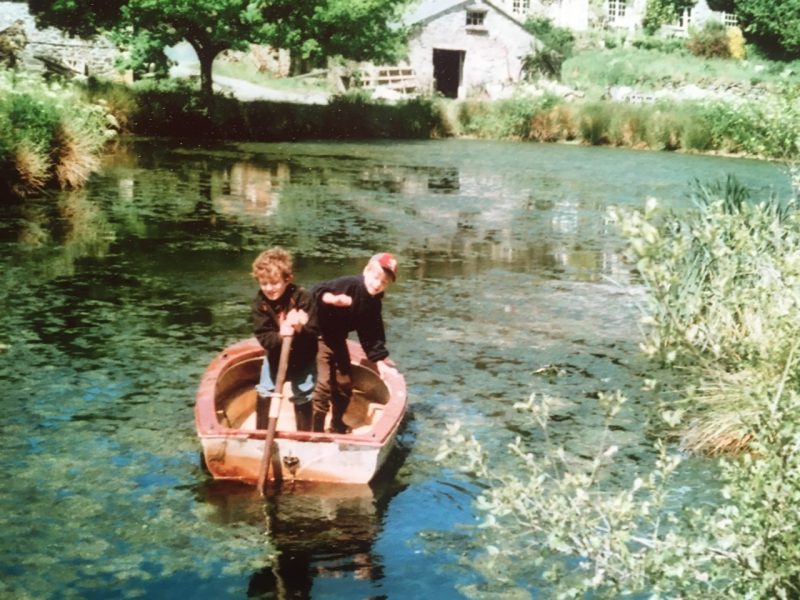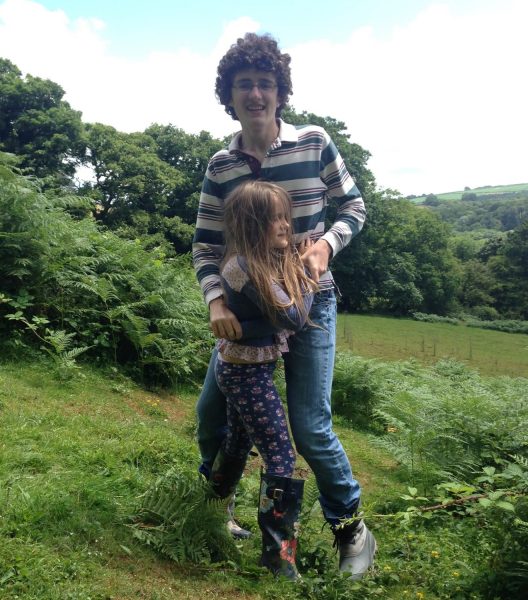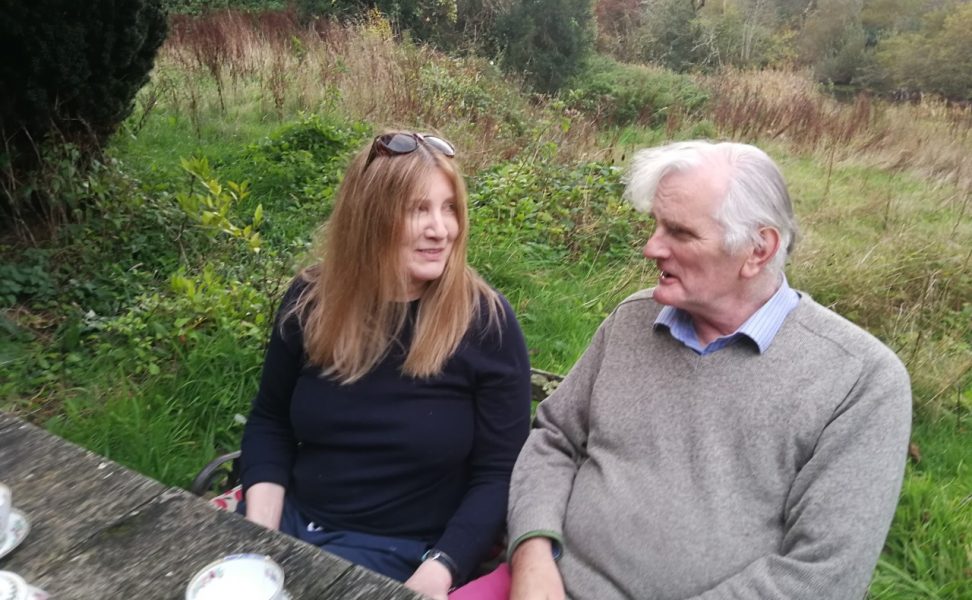Parents open parliamentary petition for ‘Harry’s Law’ following death of Exeter student

THIS ARTICLE CONTAINS CONTENT RELATING TO SUICIDE WHICH SOME READERS MAY FIND DISTRESSING
The parents of third-year Exeter student Harry Armstrong Evans, who died in June 2021, have launched a petition calling for universities to be legally required to publish their yearly suicide statistics and the departments in which these occur, in the hope that more accurate information can help prevent other students’ deaths.
Following the inquest into Harry’s death, University of Exeter Vice Chancellor Lisa Roberts was sent a ‘Report to Prevent Future Deaths,’ and the coroner, Guy Davies, criticised the University’s failure to respond to Harry’s “cry for help,” in the midst of an “acute mental health crisis.”
Exeposé sat down with Harry’s parents, Alice and Rupert, to share their son’s story and talk to them about why they are petitioning for ‘Harry’s Law.’ When Alice and Rupert Armstrong Evans first talk to us about their late son, Harry, they paint a picture of a happier time. Talking of Harry’s early years, Alice recounts how he, “was the only boy for three years in that school in a class with nine other little girls. He used to get inundated with Valentine’s cards! He was always Jesus in all the Christmas plays, that sort of thing.”

“He was quite a large person, as in, he was gangly.” She goes on. “He was tall for his age. He was a big baby, and later he was the tallest in the class.”
After this upbringing, Harry went to a co-educational primary school in Dorset, in Port Regis. “He did all the usual things — he won a prize one year in one of the classes, and he developed his own little character, I think really. He was left-handed and he had the most beautiful handwriting ever. That was one of the reasons I think they offered him a scholarship. Then he won a scholarship to go to Winchester College. And he got the headmaster’s prize to get in there.”
Alice begins to tell us that, “he really wasn’t sporty,” as a child but Rupert jumps in. “Well you say that, he rowed and he did croquet,” and both laugh. “But he wasn’t really your cricket and rugby type,” Alice says.
“In his house at Winchester, in the first year, there was this wonderful, ornate desk… All the boys have to stand up, and the tallest boy gets given this fabulous desk. And that was Harry. It’s just a little thing, but it sort of sticks in my mind. Really he was much taller than the others. But a quiet, kind person.”
Alice and Rupert tell us how Harry received three offers of university places but chose Exeter because, “he’d been a long way from home before [for school], and being close and able to come back at the weekends we thought would be a good idea. Once Covid started in March 2020, he moved back home and stayed home the whole of that year and did his final year exams from home. He returned, just before January to do his exams, but he got there a bit early because he wanted to really go for it and get good results.” Alice explains.
Despite a strong previous academic record, Harry failed his January exams. “It seems that somehow, you know he didn’t do well and he messed them up for whatever reason,’ Alice tells us. We’re really not quite sure why, but at one point he told me that he hadn’t properly uploaded the one exam that he thought he’d actually done quite well in.
“I believe it was at that point he asked his tutor when he could resit this exam. And I think it was then that his tutor told him that if those exams were resat they’d be capped at 40 per cent. My understanding is that this made Harry descend into some sort of depression. He never actually took another exam after that.”

“He’d been doing pretty well up to that point,” Rupert tells us. ‘So he was certainly in line for a 2:1 or possibly a first. And it was the fact that his results absolutely collapsed and nobody picked up on it.” Harry got 21 per cent in his January exams, after a previously sound academic record. “I mean it can’t be possible that nobody noticed that he did really badly in his exams, and he’s done really well before. Nobody ended up explaining to him his options.”
When Alice reached out to Wellbeing Services expressing concern for her son in May 2021, on multiple occasions, multiple technical and handling errors meant that her concerns were not followed up on. In the same month, Harry emailed his personal tutor and copied in the Wellbeing Services, saying ‘I have been in isolation in my virtually empty hall of residence.” He indicated that he had had some “significant personal problems” in the run-up to the exams, and that he’d “spent so much time isolated by myself in my flat with almost no human contact. It really has had an adverse effect on my mental health. I really struggled to think straight and the exams for me were a horrible culmination of my stresses.” No one from the University ended up speaking to Harry either in person or on the phone following this email or Alice’s calls.
“You know it’s all very well, to say, which is what the defense was, frankly, that everything [relating to welfare and support] is written down. But Harry really needed a human person to talk to as human beings, and he didn’t get that.” The coroner’s ‘Report to Prevent Future Deaths,’ given to Vice Chancellor Lisa Roberts, also criticised the University’s lack of proactive engagement in Harry’s case, with coroner Guy Davies stating in this report: “Nobody from the university attempted to speak to or visit Harry despite numerous concerns being raised regarding his wellbeing. There was a total absence of personal engagement…”
He went on: “Research has consistently shown that most students and staff who experience poor mental health do not access formal support. The university response was entirely by email and can be characterized as reactive. The evidence indicated a marked reluctance to respond flexibly and proactively to concerns.”
“Harry was very conscientious,” Rupert tells us. “They said he turned up to every single tutorial and meeting that they had on the course and he was a perfectionist — if things went wrong he tended to blame himself and feel really bad about it. That doesn’t seem to have been taken into account.”
He was a perfectionist — if things went wrong he tended to blame himself and feel really bad about it. That doesn’t seem to have been taken into account
Rupert Armstrong Evans
Alice elaborates, “I think he was deeply hurt that he couldn’t resit his exams without that 40 per cent cap. But he did try to help himself… He sent an email to his tutor, he was asking what his options would be to try and save his degree and what MSCs he could do — he was thinking of doing something in computing. But because it was the beginning of half term his tutor didn’t reply to it quickly. This is a letter which when I read it, you know, is somebody asking for help. It’s just so upsetting because I know that my son would never have wanted to have killed himself. He just didn’t know any other route. And he didn’t just go off and do it, he’d already tried to help himself.”
Guy Davies also suggested that academic tutors at Exeter were ill-equipped to deal with student mental health issues, and should receive suicide prevention training, stating in his report that, ‘The evidence [from the trial] indicated an absence of mandatory training for academic staff on suicide prevention and mental health awareness,’ and suggested that this was an area the university should improve. “This suggested training for academic staff is not in psychiatry or anything medical, but purely being able to flag up concerns, because there is no face-to-face training at the moment.” Alice clarifies Following their son’s death, Alice and Rupert tried to find accurate information about past student suicides from the University, but found it extremely difficult to do so. They believe there have been 12 suicides at the University over the last six years, eight of which have been officially confirmed by a coroner. According to a National World report, 67 of 114 UK universities said they did not hold information on student suicide rates (59 per cent).

“I tried to find out about suicide from Exeter University and they wouldn’t tell me anything. I then had to send a Freedom of Information request. And I was given some information but really not a lot. It was just impossible to get a straight answer from university. This is what really has led us, to in some small way, to try to enable parents and friends and students themselves to know what universities’ suicide statistics are, and in what subjects.”
To try and make information about student suicides more transparent, Harry’s parents have set up a parliamentary petition for ‘Harry’s Law.’ The law would require universities to release their yearly suicide statistics and the department in which they occur.
“What university would want there their numbers of suicides to be publicised? Of course they don’t. We would like it because hopefully there might be a competition between universities for the least number of suicides,” Alice tells us. “I mean [the University of Exeter] have been sweeping the information under the carpet because they initially came back with a a figure of suicides hereabout three.”
What university would want there their numbers of suicides to be publicised? Of course they don’t
Alice Armstrong Evans
‘Harry’s Law’ would also mean that universities could be placed into special measures by the Department of Education if their suicide figures exceed the national average. Harry’s parents hope that, with accurate information on student suicides publicly available, universities will be forced to confront the issue, and that this information will also allow parents and students to make informed decisions about their education.
“If you don’t have the information then you don’t have to hold up your hands and say there’s a problem. You just say we don’t know. We have no information on that — end of story. Whereas if you have the number of people who’ve taken their lives published on your website, and which faculty they belong to, you can be absolutely sure that pastoral services and standards will have to improve… At the moment, it’s a race to the bottom, not a race to the top. There is no incentive.” Rupert tells us.
Rupert and Alice also hope that the accurate information ‘Harry’s Law’ would provide can help universities to see patterns in student suicide rates, which could then inform their suicide prevention strategies.
“We are pretty much experts now on student suicide. I have noticed it frequently happens after they think they’ve done badly in exams. So if a student’s exams have gone badly, they should have those people who were his tutor, and his wellbeing department, informed… Harry had done very badly considering what he’d done before, and they should have spotted that sign, which I can recognise today having only read about it.”
Although Harry’s parents have spoken a lot about how universities can prevent student suicides, they also hope that ‘Harry’s Law’ and the results of the inquest into Harry’s death can change how universities view student mental health and encourage them to be proactive in taking care of their students’
“The thing is it’s the tip of the iceberg.” Alice tells us, “because for every student who regrettably takes their own life, there are probably a dozen more who attempted it, and a great number who are just unhappy. There must be thousands who are unhappy. And it’s supposed to be one of the best times of your life. And for students to go to university and to be really unhappy, it’s tragic.”
Despite the tragedy they have faced, Alice and Rupert told us that the main message they would like students to understand is that, “Things will get better and fall into place. There is always a future, there is always something else if something goes wrong. [Young adults] just need to know that things can get better. No one needs to kill themselves because they did a bad exam. I would love that message to get across.
Also, an anti-suicide charity called Papyrus found that talking to schoolchildren about suicide actually lessens suicides. And I think ‘if only I had had a chat with my son about suicide’. We could have said to Harry… we don’t care if you’re stacking shelves in Tesco, it doesn’t matter. No university degree is worth taking your life for. And I imagine most parents would think that.”
No university degree is worth taking your life for
Alice Armstrong Evans
MP for Exeter, Ben Bradshaw, told Exeposé when asked about his views on ‘Harry’s Law:’ “I am totally supportive of ‘Harry’s Law’ and have been concerned for some time about how our universities and mental health services deal with students at risk and their families. When I was a member of the Health Select Committee I helped initiate and ultimately draft a major report into suicide, which identified serious shortcomings in the current approach and made a number of important recommendations on what needed to change. Sadly, none of these has been taken forward by the Conservative Government, while our mental health services and services, in general, have continued to deteriorate after 12 years of cuts.”
A spokesperson for the Students’ Guild said, “We understand the pressures that students face, academically, socially, financially and the need to haveservices that properly support our student community. Mental health, wellbeing and support is one of the Officers and Guild’s collective priorities for the year and we will continue to work collaboratively with the University on improving the provisions in these areas.”
A spokesperson for the University of Exeter said, “We are deeply saddened by Harry’s death and the family’s loss. We are carefully considering the Coroner’s detailed conclusions in this case. We continually review and improve the wellbeing support we provide based on evidence and learnings, including from rare tragic cases such as Harry’s, and we will learn the lessons to enhance our support and operations further, specifically in the areas recommended by the Coroner. We are acutely aware of the current mental health challenges for young people and the difficulties facing external services and have invested significantly in student welfare and wellbeing support in recent years. Student health and wellbeing is always the University of Exeter’s top priority. We also welcome and support the recent Universities UK guidance on suicide prevention and their recommendation on a trusted student contact when there are serious mental health concerns. A significant number of the UK recommendations have already been implemented at the University of Exeter, and we will implement all the recommendations.”
The petition is available to sign here.
If these issues affect you, you can get in touch with: Samaritans 116 123 or Exeter Student Nightline 01392 724000
Article from print issue 738.


